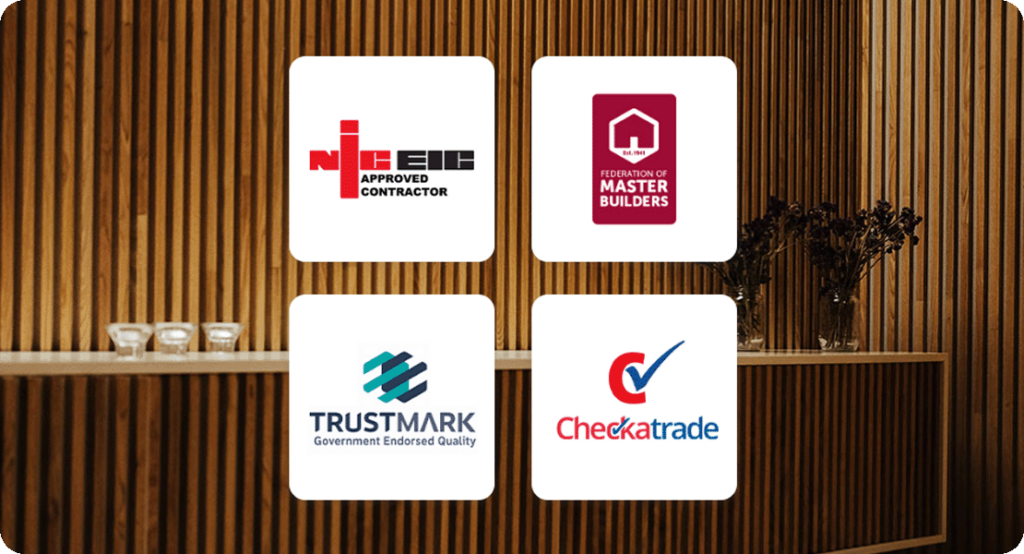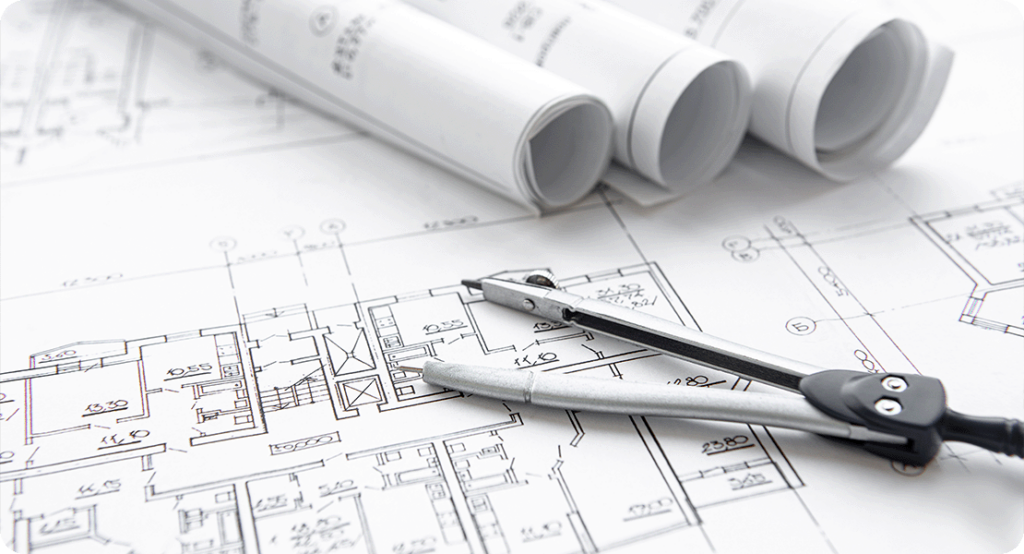Renovating a property is a major investment, and finding the right builder can make all the difference in ensuring a smooth, high-quality project. With so many building companies in London, choosing the right one can feel overwhelming. This guide will help you navigate the process and find a reputable builder for your renovation.
1. Define Your Renovation Needs
Before you start searching for a builder, be clear about your renovation goals. Are you looking for a full home refurbishment, a kitchen extension, or a loft conversion? Knowing exactly what you want will help you find a builder with the right expertise.
Start by making a list of everything you want to achieve with your renovation. Consider aspects such as layout changes, aesthetic improvements, and functional upgrades. For example, if you are renovating an older home, you may need structural reinforcements, damp proofing, or updated insulation. If you are planning an extension, think about how it will blend with the existing structure and comply with planning regulations.
Budgeting is another key factor at this stage. Establish a clear financial plan, including potential contingencies for unexpected costs. Consider whether you need to prioritise certain areas over others. Having a well-defined budget will help builders provide accurate quotes and prevent costs from spiralling out of control.
Think about how long you can reasonably accommodate construction work. Some renovations, such as kitchen refurbishments, may be disruptive to daily life, so consider temporary living arrangements if necessary. Understanding your timeframe will also help you set realistic expectations when discussing deadlines with builders.
Additionally, research any permissions or regulations that may apply to your project. Some renovations require planning permission, while others may fall under permitted development rights. A reputable builder will assist with these aspects, but having an initial awareness will help you have more informed discussions.
By clearly defining your renovation needs, you will be in a stronger position to find a builder who aligns with your vision and delivers the results you desire.
2. Check Credentials and Qualifications
Ensuring your builder is properly accredited is one of the most important steps in choosing a trustworthy and competent professional. A reputable builder should be registered with recognised industry bodies, which uphold high standards of quality, safety, and professionalism.
Industry Associations and Memberships
Look for builders affiliated with reputable organisations such as:
- Federation of Master Builders (FMB): The FMB vets its members to ensure they meet strict standards of craftsmanship and business ethics. A builder with FMB membership has been assessed for technical competence and credibility.
- National Federation of Builders (NFB): This organisation represents experienced builders and contractors, ensuring they operate with professionalism and integrity.
- Consider TrustMark Accreditation: TrustMark is a government-endorsed scheme that ensures tradespeople meet high consumer protection standards. A builder with this accreditation has undergone rigorous vetting.
- Checkatrade Membership: Checkatrade verifies and monitors builders, allowing customers to review their experiences. This can provide additional peace of mind when selecting a builder.

Insurance and Legal Compliance
Beyond professional memberships, a builder should have the appropriate insurance to protect you, your property, and their workers. Ask for proof of the following:
- Public Liability Insurance: This protects against damage caused to your property during the project.
- Employer’s Liability Insurance: If the builder has employees or subcontractors, this insurance covers injury claims while working on your site.
- Contract Works Insurance: Also known as builder’s risk insurance, this covers materials and work in progress from unforeseen events like fire, theft, or vandalism.
Certifications for Specific Work
If your renovation involves specialist work, ensure the builder has the appropriate certifications:
- NICEIC Certification: Required for electrical work to ensure compliance with safety standards.
- Gas Safe Registration: Essential for any gas-related installations or modifications.
- CITB Accreditation: If your builder has training from the Construction Industry Training Board (CITB), it indicates a commitment to continuous professional development.
Check Past Performance and References
Credentials alone are not enough; always verify the builder’s past work. Ask for references and visit completed projects, if possible. A credible builder should be willing to provide:
- A portfolio of previous renovations.
- Contact details of past clients who can vouch for their experience.
- Evidence of work carried out in accordance with industry regulations and planning permissions.
By thoroughly checking a builder’s credentials and qualifications, you ensure they meet industry standards and are equipped to handle your renovation professionally and safely. This step is essential for avoiding unreliable contractors and ensuring high-quality workmanship.
3. Seek Recommendations and Reviews
Word of mouth is one of the most reliable ways to find a good builder. Ask friends, family, or colleagues who have had renovation work done for recommendations. Additionally, check online reviews on platforms like Google, Trustpilot, and Checkatrade to see what past clients say about a builder’s work quality and reliability.

4. Review Their Portfolio
A reputable builder will have a portfolio of previous work that showcases their expertise and experience. Reviewing this portfolio is an essential step in assessing the quality of their craftsmanship and understanding their capabilities.
What to Look for in a Portfolio
When reviewing a builder’s portfolio, consider the following aspects:
- Diversity of Projects: A strong portfolio should showcase a range of work, including home extensions, loft conversions, kitchen remodels, and full refurbishments. This indicates their ability to handle different types of renovations.
- Attention to Detail: Look for high-quality finishes, seamless integrations, and well-executed design elements. A good builder should demonstrate precision and a commitment to excellent workmanship.
- Before and After Photos: Comparing before and after images of completed projects can provide a clear indication of how effectively the builder transforms spaces.
- Customisation and Creativity: If your renovation involves bespoke features or unique design elements, check whether the builder has successfully delivered personalised projects in the past.
Visit a Current Worksite
If possible, ask the builder if you can visit a site where they are currently working. This will give you an opportunity to observe:
- The level of organisation and cleanliness on-site.
- The professionalism and behaviour of the building team.
- How they handle construction challenges in real time.
A well-maintained site is often a sign of a professional builder who values safety, efficiency, and good project management.
Speak to Past Clients
A builder’s past clients can provide invaluable insights into their work quality and reliability. If possible, ask the builder for references and reach out to previous customers with questions such as:
- Were they satisfied with the quality of work?
- Did the project stay within budget and timeline?
- How well did the builder communicate throughout the process?
- Would they hire the builder again for future projects?
Speaking directly with previous clients can give you confidence in the builder’s ability to meet your expectations.
By thoroughly reviewing a builder’s portfolio, visiting ongoing projects, and speaking with past clients, you can gain a clear understanding of their skills, experience, and work ethic. This due diligence will help ensure you choose a builder who is capable of delivering a high-quality renovation that aligns with your vision.
5. Get Multiple Quotes
Obtain at least three quotes from different builders. Be wary of quotes that seem too low, as they may indicate poor-quality materials or hidden costs. A good builder will provide a detailed written quote outlining labour, materials, timelines, and any potential additional costs.
6. Ask About Their Team and Subcontractors
Find out whether the builder has an in-house team or relies on subcontractors. While subcontracting is common, ensure they work with trusted professionals. It’s also important to check who will be managing your project and how often they will be on-site.

7. Understand the Payment Terms
A professional builder will have clear and transparent payment terms that outline how and when payments should be made throughout the project. Understanding these terms is crucial to ensuring a fair financial agreement and avoiding potential disputes or financial risks.
Avoid Large Upfront Payments
Be cautious of builders who request a significant percentage of the total cost upfront. While an initial deposit is standard, it should be a reasonable amount, typically around 10-20% of the total project cost. Large upfront payments can be a red flag, as they may indicate financial instability or a lack of commitment to delivering the work as promised.
Opt for Staged Payments
A well-structured payment plan should be based on project milestones rather than fixed dates. Staged payments help ensure that work progresses as agreed and provide financial security for both parties. A typical payment schedule might include:
- Deposit Payment: A small initial payment to secure the contract and schedule the work.
- Stage 1 Payment: Payment after initial groundwork or demolition is completed.
- Stage 2 Payment: Payment upon reaching key structural milestones, such as completion of foundations, framing, or roofing.
- Stage 3 Payment: Payment upon completion of internal work, such as plastering, electrical wiring, or plumbing installations.
- Final Payment: The remaining balance, paid only after a thorough inspection and client approval of the completed project.
Tying payments to completed work ensures that the builder remains accountable and motivated to deliver high-quality results on schedule.
Get Everything in Writing
Always insist on a written contract that clearly outlines the payment terms, including amounts, due dates, and conditions for each stage of payment. A formal agreement protects both parties and prevents misunderstandings. It should also specify the method of payment (e.g., bank transfer, cheque, or escrow service) to maintain a clear record of transactions.
Retain a Percentage Until Completion
To safeguard against potential defects or unfinished work, consider withholding a small percentage of the total payment (typically 5-10%) until all snagging issues are resolved. This retention payment acts as an assurance that the builder will address any minor faults or incomplete tasks before officially closing the project.
Be Wary of Hidden Costs
Discuss potential additional costs upfront, such as unforeseen structural issues, changes to materials, or last-minute modifications. A reputable builder will provide a transparent breakdown of costs and inform you of any changes before proceeding with extra work.
By understanding the payment terms and structuring payments strategically, you can protect your investment while ensuring that the builder stays committed to delivering high-quality work on time and within budget.

8. Verify Planning Permissions and Regulations
Before beginning any renovation project, it is essential to understand whether planning permission or building regulations approval is required. Failing to comply with these legal requirements can result in costly fines, delays, or even the need to undo completed work. A reputable builder should have a strong understanding of these regulations and be able to guide you through the process.
Understanding Planning Permission
Planning permission is required for certain types of construction and renovation work, particularly those that significantly alter a property’s structure, size, or use. Factors that may necessitate planning permission include:
- Large Extensions or Additions: If your extension exceeds permitted development rights, planning permission is required.
- Listed Buildings: Any work on a listed building requires special consent due to its historical significance.
- Change of Use: If your renovation involves changing a property’s use (e.g., converting a residential home into commercial premises), planning approval is needed.
- Significant External Changes: Altering the façade, roof height, or overall structure of a building may require planning approval.
It is advisable to check with your local planning authority (LPA) to determine if permission is required before starting any work.
Permitted Development Rights
Some smaller home improvements may fall under permitted development (PD) rights, meaning they do not require full planning permission. Examples of projects that typically qualify for PD include:
- Single-storey rear extensions that do not exceed a specific size.
- Loft conversions within height and volume restrictions.
- Internal renovations that do not affect the building’s structural integrity or external appearance.
However, PD rights can vary based on location, especially in conservation areas, so it is essential to confirm with your LPA before proceeding.
Building Regulations Compliance
Even if planning permission is not required, most renovations must comply with UK building regulations. These regulations ensure that construction work meets safety, energy efficiency, and structural integrity standards. Key areas covered include:
- Structural Safety: Ensuring foundations, walls, and roofs are stable and meet load-bearing requirements.
- Fire Safety: Installing fire-resistant materials, smoke alarms, and appropriate escape routes.
- Electrical and Gas Safety: Electrical work must comply with Part P regulations, and gas installations must be carried out by a Gas Safe-registered engineer.
- Insulation and Energy Efficiency: Meeting minimum requirements for insulation, ventilation, and heating systems.
A reputable builder should be familiar with these regulations and ensure that all work complies with the necessary standards.
Obtaining Building Control Approval
Most structural or significant renovation work requires approval from Building Control. This can be done in two ways:
- Full Plans Application: A detailed submission of plans to the local authority before work begins, ensuring compliance from the outset.
- Building Notice Application: A simpler process where work starts without pre-approved plans, but inspections occur throughout the project to confirm compliance.
Building Control officers will carry out inspections at key stages of the project and issue a completion certificate once all work meets the required standards.
Why Your Builder’s Knowledge Matters
An experienced builder will understand these regulations and help ensure that:
- All required permissions are obtained before work begins.
- The project complies with building control requirements.
- Any necessary paperwork, such as structural calculations or fire safety reports, is submitted correctly.
- Inspections are scheduled and passed without delays.
By verifying planning permissions and building regulations early in the process, you can avoid legal issues, ensure safety, and protect your property’s long-term value.
9. Establish Clear Communication
Good communication is essential for a successful renovation. Choose a builder who listens to your needs, explains processes clearly, and provides regular updates. Having a single point of contact will also help streamline communication.
10. Get a Written Proposal
A well-drafted written proposal is essential for any renovation project, as it serves as a legally binding agreement between you and your builder. This document ensures clarity, sets expectations, and helps prevent disputes by outlining every crucial detail of the project. Without a written agreement, you risk miscommunication, cost overruns, or unfinished work.

What Should Be Included in a Written Proposal?
A comprehensive contract should cover all aspects of the project, including:
- Project Scope: A detailed description of the work to be carried out, specifying the areas of the property that will be renovated, the materials to be used, and any specific design elements. This prevents misunderstandings about what is included in the project.
- Timeline and Milestones: The contract should clearly define the project’s start date, estimated duration, and key milestones. Staging the project into phases helps track progress and ensures work is completed within the agreed timeframe.
- Payment Schedule: Payment terms should be clearly stated, specifying when payments are due and linking them to project milestones. Avoid contracts that demand large upfront payments without clear progress markers.
- Labour and Material Costs: A breakdown of costs, including materials, labour, subcontractor fees, and any additional charges, ensures transparency. A fixed-price contract can protect against unexpected price increases.
- Change Order Process: Renovations often involve unforeseen challenges or design changes. The contract should outline a process for handling modifications, including how additional costs and delays will be managed.
- Insurance and Liability: The builder should provide proof of public liability insurance, employer’s liability insurance, and contract works insurance to protect against damages, accidents, or unfinished work.
- Building Regulations and Planning Permissions: The proposal should confirm that the builder will adhere to all relevant regulations, obtain necessary approvals, and ensure work meets legal and safety standards.
- Dispute Resolution Terms: A clear process for handling disagreements—whether through mediation, arbitration, or legal action—can prevent small issues from escalating into costly disputes.
- Snagging and Final Sign-Off: The contract should include a snagging clause that allows you to identify and address any defects before making the final payment. Retaining a small percentage of the final payment until all issues are resolved provides extra security.
- Warranty and Aftercare: A reputable builder should offer a warranty on workmanship and materials, specifying how long they will cover defects and what is included in their post-completion support.
Why a Written Proposal is Crucial
- Protects Both Parties: A clear agreement ensures that both you and the builder understand your responsibilities and rights.
- Prevents Cost Disputes: With a detailed cost breakdown, you avoid unexpected charges or budget overruns.
- Ensures Legal Compliance: The contract provides proof that the builder is working in accordance with regulations and agreed-upon terms.
- Provides Peace of Mind: A formal agreement establishes trust and professionalism, giving you confidence that the work will be completed as promised.
Before signing any contract, carefully review the terms, seek legal advice if necessary, and ensure that everything you have agreed upon is documented in writing. This will safeguard your renovation investment and ensure a smooth, hassle-free project.
Conclusion
Finding the right builder in London requires thorough research and due diligence. By following these steps, you can select a reliable and skilled professional who will bring your renovation vision to life with high-quality workmanship and minimal stress. If you’re looking for an experienced and reputable building company, Eton Builders is here to help with your renovation needs.

